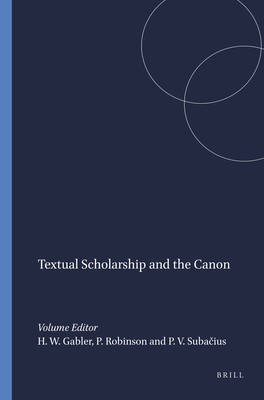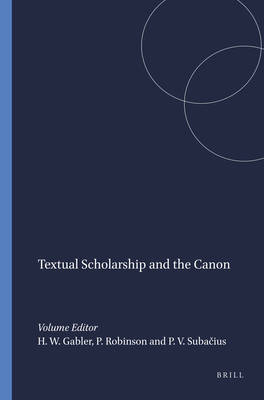
- Retrait en 2 heures
- Assortiment impressionnant
- Paiement sécurisé
- Toujours un magasin près de chez vous
- Retrait gratuit dans votre magasin Club
- 7.000.0000 titres dans notre catalogue
- Payer en toute sécurité
- Toujours un magasin près de chez vous
Description
Textual scholarship has always been closely linked to questions of canonicity, both in terms of what texts are edited and how they are edited. As attitudes towards the canon have altered over the last decade, textual scholarship too has changed, both in practice and theory. The essays in this collection examine the connections between textual scholarship and the canon, and the implications for textual scholarship of changing attitudes to the canon within the wider academic environment. As is now characteristic of Variants, essays range widely over time and space in their focus, reflecting the breadth of the Society's membership and interests. Two essays focus on different aspects of the distinctive Lithuanian experience of the canon. Other essays trace the influence of the concept in Sweden, the problematic nature of the canon when dealing with unstable medieval texts, the debate within the German scholarly community about modes of editing, developments in the canon outside the academic world in the last decades, and an account of the problems of editing a very non-canonical text. Three essays not linked to the theme of the volume close the collection: an account of the galley proofs of Pynchon's V., a survey of developments in book design for scholarly editions through print and beyond, and an account of the reception of Ossian, which fuses book history, textual scholarship and intellectual history.
Seulement chez Librairie Club
+ 118 points sur votre carte client de Librairie Club
Les avis
Nous publions uniquement les avis qui respectent les conditions requises. Consultez nos conditions pour les avis.







